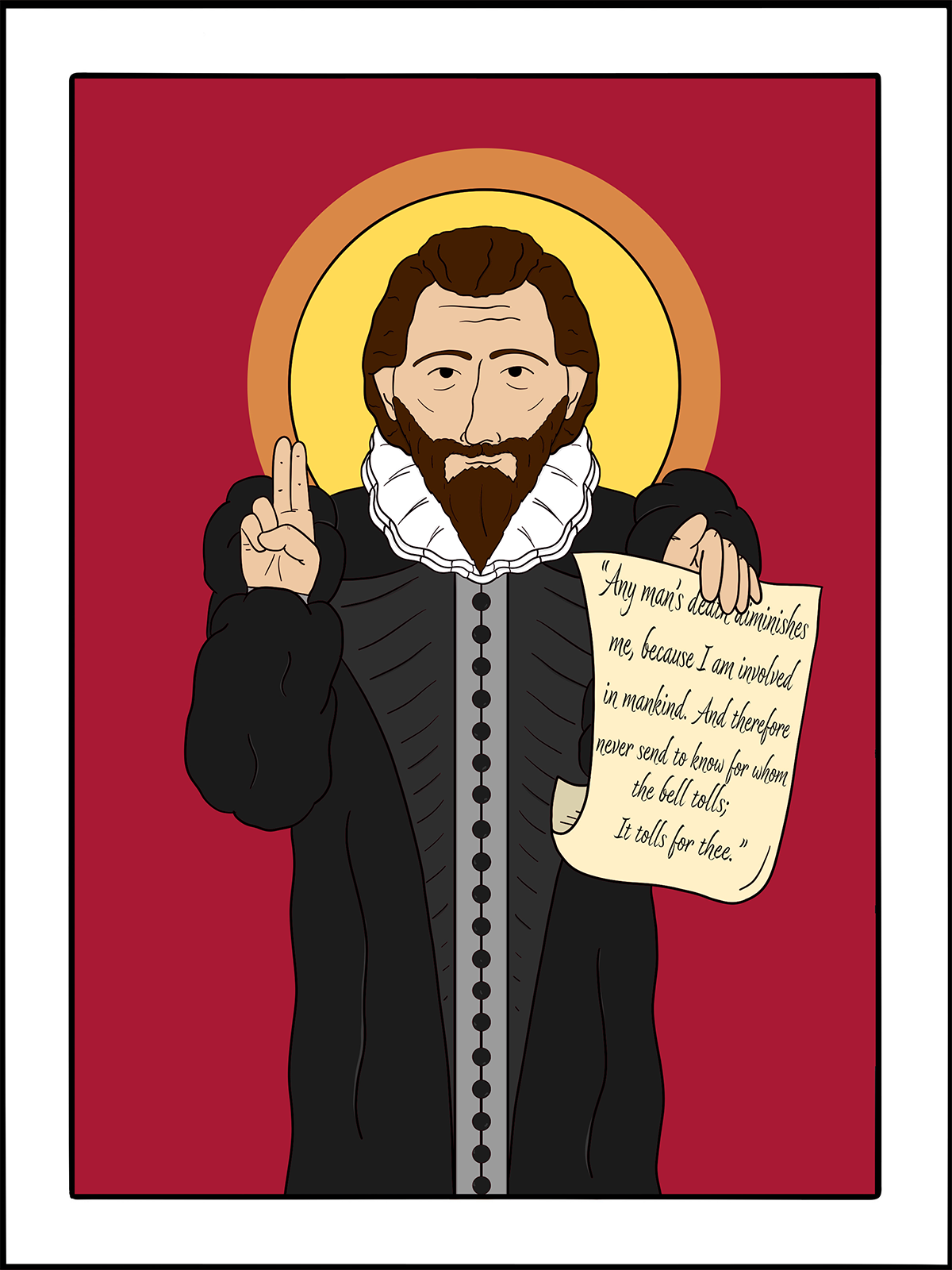
March 31
John Donne
Priest and Poet, 1631
art by Rev. Kirsten Kohr of Uhrichsville, Ohio O God of eternal glory, whom no one living can see and yet whom to see is to live; grant that with your servant John Donne, we may see your glory in the face of your Son, Jesus Christ, and then, with all our skill and wit, offer you our crown of prayer and praise, until by his grace we stand in that last and everlasting day, when death itself will die, and all will live in you, who with the Holy Spirit and the same Lord Jesus Christ are one God in everlasting light and glory. Amen.
“Any man’s death diminishes me, because I am involved in mankind. And therefore never send to know for whom the bell tolls: It tolls for thee.”
These words are familiar to many; their author, John Donne, is one of the greatest of English poets. In his own time, he was the best-known preacher in the Church of England, but he came to that eminence by a tortuous path. Born into a wealthy and pious Roman Catholic family on January 21, 1572, in London, he was educated at both Oxford and Cambridge, and studied law at Lincoln’s Inn. Some time later he conformed to the Established Church and embarked upon a promising political career of service to the State. The revelation of his secret marriage in 1601 to the niece of his employer, the Lord Keeper of the Great Seal, brought his public career to an end. In 1615, he was persuaded by King James I and others to receive ordination.
Following several brief parish pastorates, Donne rose rapidly in popularity as Dean of St. Paul’s Cathedral, London, from 1621 until his death. He drew great throngs to the cathedral and to Paul’s Cross, a nearby open-air pulpit. His sermons reflect the wide learning of the scholar, the passionate intensity of the poet, and the profound devotion of one struggling in his own life to relate the freedom and demands of the gospel to the concerns of a common humanity, on every level and in all its complexities.
The hymn “Wilt thou forgive that sin where I begun” (The Hymnal 1982, #140) is one of his poetic legacies. In another famous poem, he writes:
Batter my heart, three-person’d God, for you
As yet but knock, breathe, shine, and seek to mend;
That I may rise and stand, o’erthrow me, and bend
Your force to break, blow, burn, and make me new.
I, like an usurp’d town to another due,
Labor to admit you, but oh, to no end;
Reason, your viceroy in me, me should defend,
But is captiv’d, and proves weak or untrue.
Yet dearly I love you, and would be lov’d fain,
But am betroth’d unto your enemy;
Divorce me, untie or break that knot again,
Take me to you, imprison me, for I,
Except you enthrall me, never shall be free,
Nor ever chaste, except you ravish me.
John Donne died in London on March 31, 1631.
Excerpted directly from “Lesser Feasts and Fasts 2022,” p. 164-165.
Lessons and Psalm Ecclesiastes 9:1-12
Psalm 16
John 5:19-24
Preface of the Epiphany

